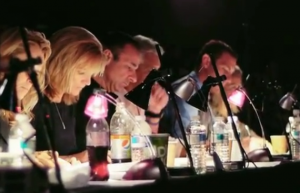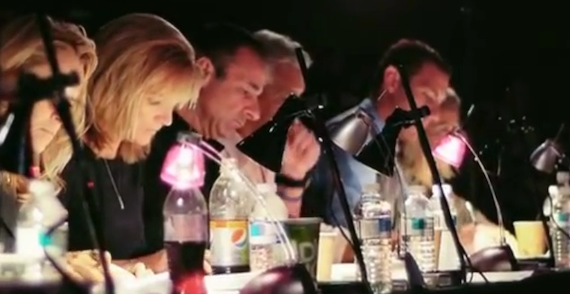Judges Speak Out: Survey Results
 In July, the findings of the United States Cheer Officials Survey were released. Get a snapshot of the judges’ responses in this recap, or click here to download a PDF of the entire survey.
In July, the findings of the United States Cheer Officials Survey were released. Get a snapshot of the judges’ responses in this recap, or click here to download a PDF of the entire survey.
Just the Facts
- The current number of judges estimated to be working in the all-star cheer industry is 250; 106 participated in this survey.
- 36% of respondents have judged 6-10 years, while 29% of respondents have judged 11-15 years.
- The companies most strongly represented in the survey include Varsity All-Star (70% of respondents), Jam Brands (62%) and Spirit Sports (45%).
- Not all respondents answered every question, and participants were guaranteed anonymity.
Conditions & Compensation for Judges
Hours worked: 73% of respondents work a 8- to 12-hour day, while 26% responded that they work more than 12 hours at an event.
Lunch breaks: The majority of respondents (55%) said they receive between 20-40 minutes for a lunch break, while 29% of respondents said they receive less than 20 minutes.
Compensation: 54% of respondents receive between $100-$199 for a one-day competition, and 42% said they receive $300-$399 for a two-day competition.
Reimbursement: When asked about reimbursement, 72% answered negatively about travel time; 51% answered negatively about baggage fees; and 44% answered negatively about dining expenses.
Number of Judges: Only 6% of respondents felt that competition companies hire the appropriate number of judges for the amount of teams competing.
Qualifications/Training
45% of respondents felt they had been properly trained on the scoresheet, while 38% felt they had been properly trained on the skills rubric.
26% of respondents felt that competition companies select judges based on their level of expertise for high-stakes divisions.
Only 11% of respondents “strongly agreed” that competition companies select judges based on strength of knowledge.
Survey Recommendations Based On Input
- Standardize judge selection across brands
- Implement a judge appraisal process
- Develop more meaningful communication of rule changes/clarifications
- Develop a judging organization that is separate and distinct from competition brands
- Provide for a Head Official at each event
- Implement a consistent travel reimbursement policy
- Develop an online voucher system
- Develop a travel arrangement site that gives judges’ control over flight selection
- Develop a pay negotiation process
- Provide Judges’ Break rooms at all competitions
- Implement a judging hour maximum
- Close registration the week before scheduled competitions
- Provide a pay amount consistent with industry standard
Sound Bytes
“I hate the rubrics. I feel that it has taken away all creativity and that the sport of cheerleading has become boring. I hope they will give this sport the freedom it deserves and give more opinion back to the judges—otherwise, they should just calculate what teams are doing by computer and not even have judges.”
“I feel that there should be a ‘rule’ put in place that any competitions with over eight hours of judging involved should use a two-panel, division-rotating panel.”
“I believe that judges need to be compensated more and have more of a say in travel times, etc. Respect for time and appropriate compensation both need to improve in order to increase the quality of judging panels.”
“There definitely needs to be a more universal training and qualification for judging. [I’m] tired of sitting next to judges who are judging just because they know so-and-so.”
Validity
We asked Cheer Industry Insights expert Jeff Watkins for his thoughts on the survey’s validity:
“This appears to be a sound study and well-reported. Any time a study can get half of their population to participate, it is definitely representative [of the collective opinion]. It is good for the judges to be able to make an anonymous statement without consequence. The only issue I see is that it was conducted, written, and edited by cheer judges—I believe the study would carry a lot more weight if done by a non-judge.”








